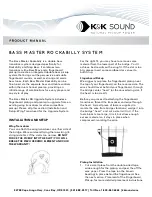
Revision 5
69
August 2021
Table 13: Calculation Parameters
Parameter
Normal
Value
Explanation
Plant
Factor
-3
Plant factor term used in the Air Demand calculation (Section
1.1). Gain term applied to the air demand output to adapt the
process variable (Air Demand) to the plant’s front-end air
adjustment capability. Defined by the equation below:
𝑃𝑃𝐹𝐹
=
−𝑄𝑄
𝑡𝑡𝑡𝑡
× 100
[
𝐻𝐻
2
𝑆𝑆
]
𝑎𝑎𝑡𝑡
×
𝑄𝑄
𝑎𝑎𝑡𝑡
Where:
•
PF = Plant Factor
•
Q
tg
= Typical tail gas flow rate (moles per unit of time)
•
[H
2
S]
ag
= Typical molar concentration of H
2
S in acid
gas feed stream
•
Q
ag
= Typical acid gas feed stream flow rate (moles
per unit of time)
Once the plant factor has been established for a given
process, the units of air demand become % Excess Air, so a
positive air demand means that the air input to the furnace
should be reduced and negative air demand means that the
air input to the furnace should be increased.
Operating
Ratio
2
Stoichiometric ratio of H
2
S to SO
2
at which the air demand
becomes zero (i.e. no change required to input air), regardless
of the numerical value of the plant factor term. In a standard
Claus Process sulfur recovery unit, the optimal ratio is 2:1,
however other sulfur recovery unit processes may use
different ratios.
H
2
S, SO
2
Span
≈1
Span factor applied to the calculated concentration of H
2
S,
SO
2
prior to being displayed on analyzer screen and output on
analyzer outputs. Can be used to make fine adjustments to
analyzer calibration.
COS,
SVAP, CS2
Span
1 (if used);
0 (if not
used)
Span factor applied to the calculated concentration of COS,
sulfur vapour, CS
2
prior to being displayed on analyzer screen
and output on analyzer outputs. If set to zero (default for COS
and CS
2
) displayed concentrations will be zero.
4.8.2.2
Cell Length
The
Cell Length
parameter specifies the length of the measurement cell in centimetres
(cm). The cell length is measured from the inside surface of one cell window to the inside
surface of the other cell window. According to the
Beer-Lambert law
, the absorbance of
a sample gas is directly proportional to the path length of light passing through that
sample gas, so the cell length is a necessary parameter for calculation of the absorbance
and thus the concentration of the species of interest. The cell length for a given analyzer
is determined by the required measuement range for that analyzer; the higher the
required measurement range, the shorter the cell length will be. Cell lengths can vary
from as short as 1 cm to as long as 15 cm. The specific cell length for a given analyzer is
indicated on the analyzer’s factory QC documentation.
Summary of Contents for 943-TGS-CE
Page 137: ...Revision 5 137 August 2021 Figure 84 Oven Cabinet Details...
Page 138: ...Revision 5 138 August 2021 Figure 85 Control Cabinet Door Closed...
Page 139: ...Revision 5 139 August 2021 Figure 86 Control Cabinet Door Removed...
Page 140: ...Revision 5 140 August 2021 Figure 87 Power Steam Air Signals Connection Details...
Page 141: ...Revision 5 141 August 2021 Figure 88 AC Wiring Schematic...
Page 142: ...Revision 5 142 August 2021 Figure 89 DC Signals and Wiring Diagram...
Page 143: ...Revision 5 143 August 2021 Figure 90 Flow Diagram...
Page 144: ...Revision 5 144 August 2021 Figure 91 Control and Oven Cabinets Interconnect Wiring...
















































